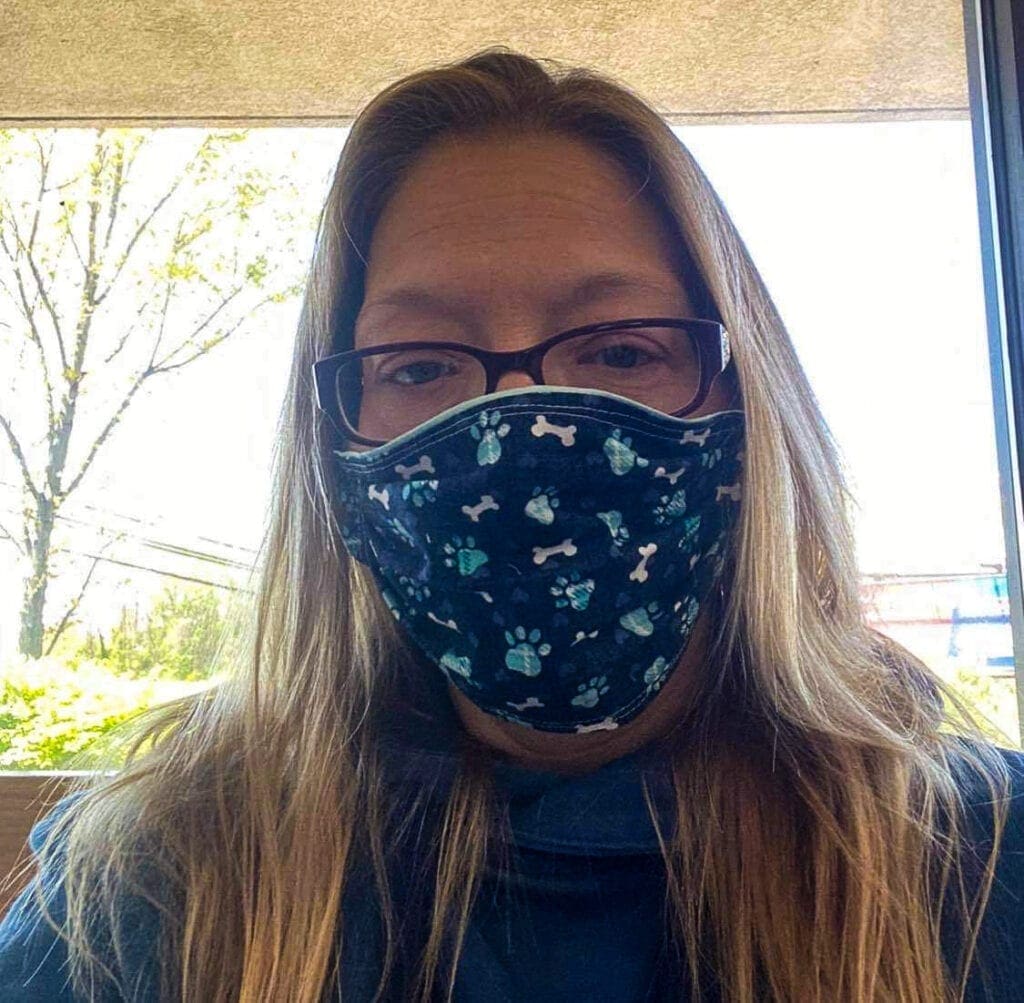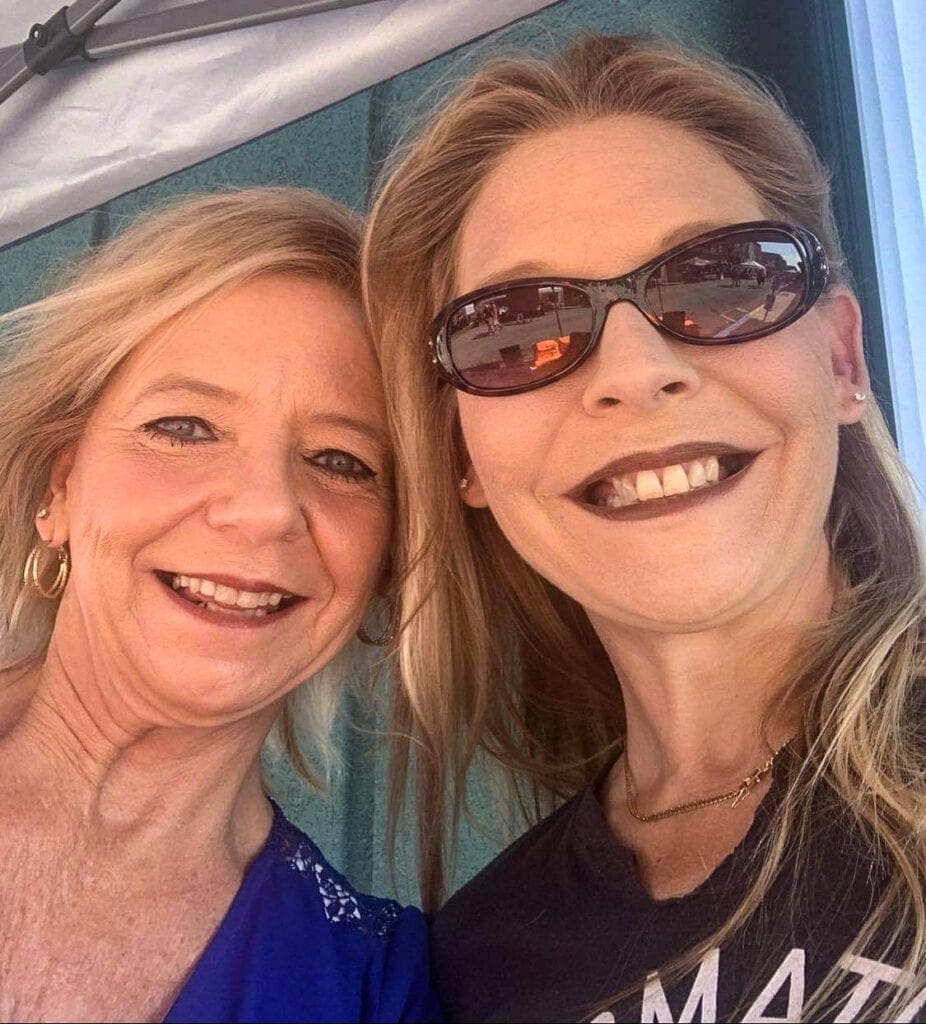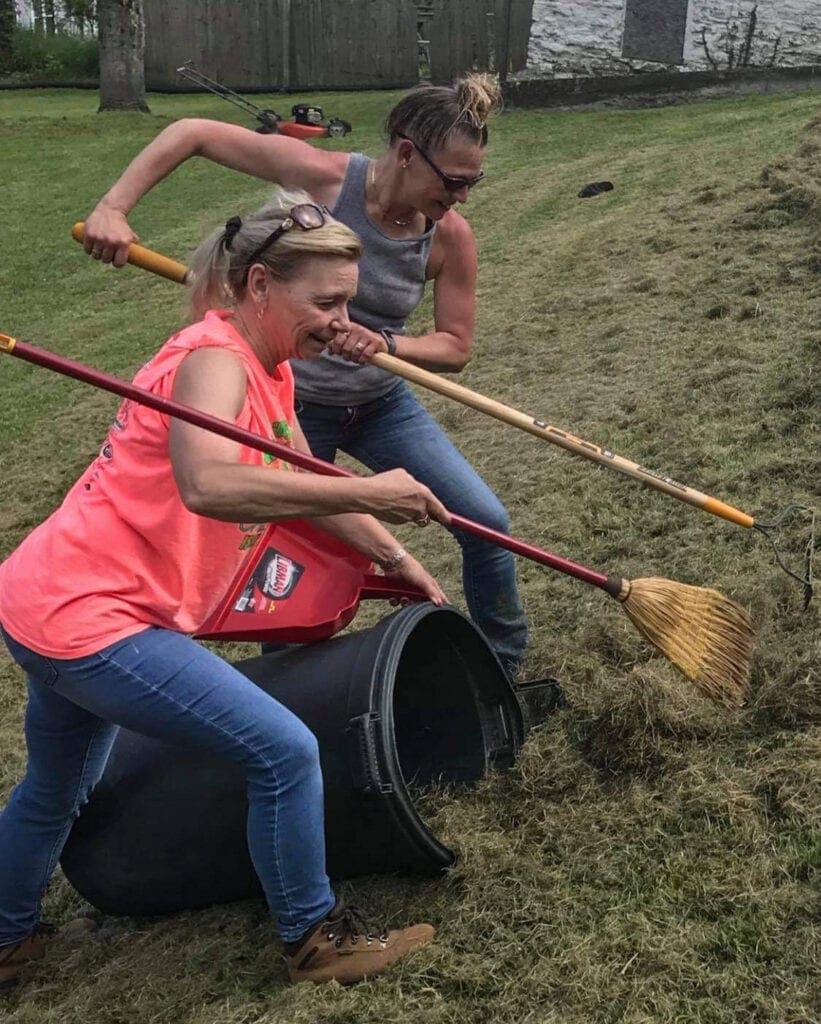We complain, most of us anyway during this pandemic, that everything has been canceled, and there are way fewer chances to be social with others, but Angela Del Vecchio-Goodson is of a much different mindset.
As the executive director of the Information Helpline, Angela has long been in contact with all of the non-profit organizations in the Upper Ohio Valley, so she and her small staff can offer assistance to those in need. Over the last six months, local residents have struggled with receiving unemployment benefits, food security, utility shutoffs, and homelessness more so than before, so she has formed a formal committee of directors, staff members, and lawmakers to seek solutions.
Add to the issues the fact that donations have dwindled for non-profits because of a lack of events that once raised funds for food banks, toy drives, and financial help for folks who find themselves in fear of losing electricity, water service, or something else essential for living safely.
Del Vecchio-Goodson’s mission is simple. If there is a need, meet it and eliminate it, but COVID-19 has amplified the urgency because of job loss, the lack of health care, poverty, and a heat-wave summer that has strained budgets across the Upper Ohio Valley.

What have been the biggest challenges at Information Helpline since the beginning of the coronavirus pandemic?
There have been many challenges; daily challenges if you will. First and foremost, it is overwhelming to try to keep up with all of the policy changes within and at agencies be it non-profit, state or federal programs. Our call volume has more than quadrupled. We normally take 100-200 calls a month. During the pandemic, we are getting 500+ calls a month. The way we used to be able to provide services to our clients has changed, so we had to figure out how to safely meet with people while following the CDC guidelines.
The needs of people have also changed in some respects. We have had to figure out how to best provide services for those at high risk, and we have been making a lot of more house calls and trying to help out in the community when and where we can.
Which local state lawmakers have you worked with to help local residents with receiving their unemployment benefits, and how many folks requested help?
In the beginning, I was in contact with the governor’s staff. I then began working closely with Mary Jo Guidi at Senator Manchin’s Office. Mary Jo is always wonderful to work with. Over the past couple of months Delegate Erikka Storch has been a savior to us all. She attends Information Helpline’s Community Coordination of Services Team calls every other week and is a representative of Wheeling Chamber but also is a delegate in the West Virginia Legislature.
Anyone that calls regarding stimulus checks, unemployment, schooling concerns, we are able to provide them with Erikka’s information on the spot. Being on our calls also enables her and Mary Jo to keep up on a local level with all of the social services being offered, difficulties we are experiencing, gaps in the system, as well as the increase in services needed and requested.
We have received roughly 150 calls for unemployment alone. Anything from people not having a computer or internet to sign up for unemployment and to file their weekly claims but also those as of this week that have filed for unemployment in May and have yet to receive any payments.

Please explain why you decided to form a group of officials of a plethora of non-profit organizations here in the Upper Ohio Valley, and include details on the accomplishments of the group.
I was contacted one evening by Danny Swan of Grow Ohio Valley and Kate Marshall of House of Hagar. They were looking for one place that was providing up-to-date information, resources and referrals. Naturally, since we are information and referral, they asked if we had some of type of system where one could go to access the latest changes and daily information with all things social work/social services related.
From there, the idea was born to create a Live Google document and to provide access to all agencies and staff. This, of course, was to help cut down on needless hours on the phone for the individual seeking the assistance and having to re-tell their story multiple times to multiple people, but also for the non-profits that were providing that assistance and may need a resource or referral quickly.
We invited every social service agency and organization to attend a weekly call and share what they were doing, how the pandemic was changing their policies and guidelines, who was open or closed, what their needs were, and if they needed volunteers or not. Due the overwhelming amount of shared information on these calls, our Google Document quickly grew to 15+ pages- each separated and labeled pending need and or service- i.e. Utilities were the first page. IHL contacted every utility (gas, electric, water)in the northern panhandle to get their information regarding moratoriums, fee waivers, what people should start doing right now, etc.
This information was then added to the database document along with instructions, contact names and numbers in case another agency or individual needed to contact that agency. By separating the list, this allowed for faster searching and faster retrieval of immediate information. This list was then given to every agency, Senator Manchin’s Office as well as Erikka Storch. We kept the list in-house per se due to personal information (agency director’s cell phone numbers, emails, etc) being included in the list. This was and is a true sharing of information and community agencies working together.
This is not to say that agencies were not all working together before because we were, just not to this level. It has truly been amazing. I value all of my co-workers and everything they are doing. We now have the call every other Wednesday morning. The plan was to discontinue this call after the virus, but as of late, everyone really seems onboard and wanting to continue the collaboration calls, at least monthly. I really look forward to this call.
You have initiated contact with a lot of people recently because of the holiday food distribution that the Information Helpline is involved with each year. Please explain why.
You know, our holiday assistance kind of happened by accident. Everyone knows Thanksgiving and Christmas happens on the same day every year. They are not surprise holidays, but due to having to budget, plan and fulfill orders, a lot of agencies only take applications during October or the first week of November. In reality, a lot of people are not thinking about Christmas in October. Families with young children are thinking about bills and Halloween costumes. The thought of being able to provide Christmas for many is overwhelming and anxiety- provoking. Historically, the first week in December right after Thanksgiving our phones would start ringing off the hook with people seeking help with food and/or food and toys.
We had nowhere to send them, so we started taking the “overload” of families and children. What has gone from 15-20 kids we had to shop for and a handful of Holiday food baskets, has now grown to 300 + food baskets some years. The Wheeling Island Racetrack has been amazing in providing some of the turkeys and hams for the baskets as well as the United Way by hosting the Chef Cook Off every year for the cause!
Liz, my sister Marisa, and I shop for all of the sides and make the baskets ourselves. We make sure families have a full meal: ham, potatoes, noodles, corn/green beans, gravy and rolls.
As for the toys, we do not want any child to be without toys on Christmas morning. Liz, my sister Marisa Dopkiss, and I personally shop for every child and try our best to fulfill their wish lists. And honestly, a lot of the older kids want Nike or UnderArmour sweatshirts and sweats, a pair of Nike shoes, or Nike socks. They want what other kids have that they do not. We have started to reach out to donors already and preplanning only because this is a huge undertaking for the few of us that put all this together. Due to the current financial crisis everyone is in right now, we plan for our list of people to exceed what we were already having a hard time fulfilling.
I fully expect families and individuals to reach out to us this year that have never had to utilize us or any social service agency before. This is an extremely delicate situation, and we try our best to make everyone feel welcome; we look at this as more of community giving, our way of saying thank you, happy holidays, we wish everyone the best. Once this is over, it takes the three of us about a week to physically and mentally recover, but it is worth it in the end. Several of us agencies are having a meeting this year to discuss the upcoming holidays and how we can best prepare.
Of course, things will look different this year, but the needs are also different this year. We will be discussing the possibility of sharing our lists and applications so that we can check for duplicate names and families; with the increased need and added stress on agency staff and budgets that we simply do not have, we really need to be cognizant of duplicating services so as to ensure every family needing help, gets it.

How has your life changed during the pandemic?
My life has changed drastically LOL. Pre-Covid, I was a hot mess with a chaotic semblance of a schedule. My days and hours were scheduled down to the minute from getting my son to school, working all day, picking him up, groceries, dogs, dinner, the house chores, etc. It was busy and chaotic, but at least I knew what was coming and what was next. My life was organized chaos. Now, I feel as if I have lost all control; my once organized chaos has now become unorganized chaos, and I have no idea what is coming next.
Mixing work with school (because I thought going back to school was a great idea at the time), my family and dogs and dinner and managing my home all while at home is quite overwhelming. It seems as though new restrictions, or guidelines or issues come up every day, and we have to navigate and do an about-face some days just to be able to get through the day. Mentally, this is exhausting. I feel as though the needs of the residents in the communities are so much and so great that we are not helping anyone.
Then I have other days where I feel like we at least scratched the surface. Being a social worker does not allow one much rest or ease of mind, but being a social worker in rural Appalachia during covid is like riding a bike while it and you are on fire. The challenges of working from home, navigating new guidelines regarding how we can provide assistance with new restricted, but yet, unrestricted use of the internet now to provide services, raising my son, taking care of my family, worrying about him returning to school, making sure Luna and Roxy are best utilized and get through this as well with continued training is exhausting.
I have had to learn that on the days where I feel like I cannot possibly continue on this way, that yes, in fact, I can. I may need to rest and take a break, and that is okay. When my body and mind are overloaded and overwhelmed from the constant worrying, stress and anxiety, I have to just let go, and this is very new to me. I am learning that to truly appreciate anything, I need to take the time to see it.
I cannot constantly look at the bigger picture. Some days all I am able to see is the thumbprint shot of the show, and that must be okay. I have learned that we in the Upper Ohio Valley are resilient people and that we will get through this. Covid will end one day, and we will come out stronger and better than we were before, but for now, all I can do is continue to learn to just let go and let God show me the way.
Although I may want to be perfect, I am anything, but some days I can blaze through and others I have trouble just finding my shoes. I am “imperfectly perfect,”and that’s okay.

